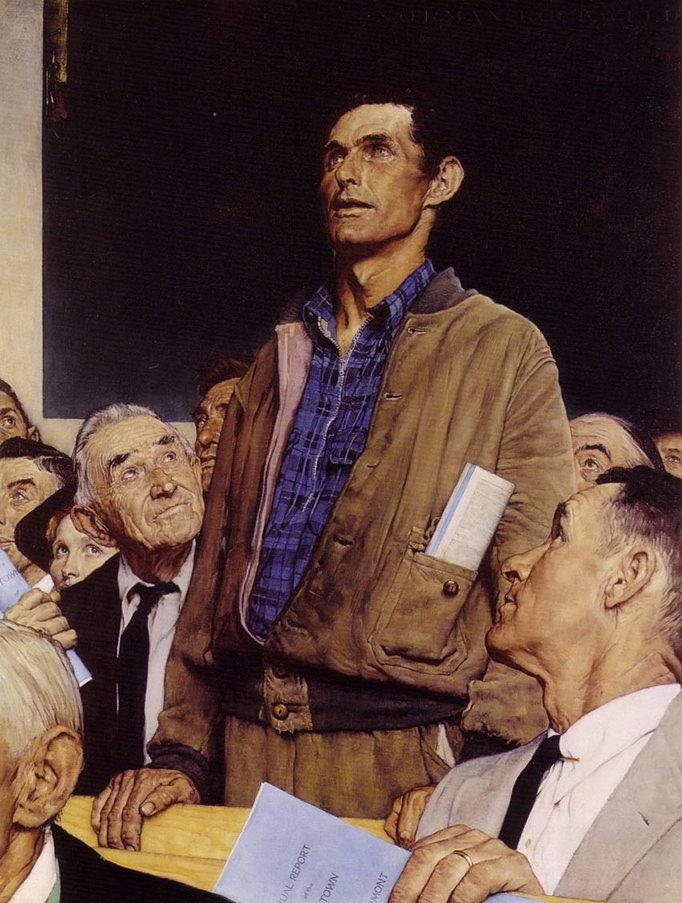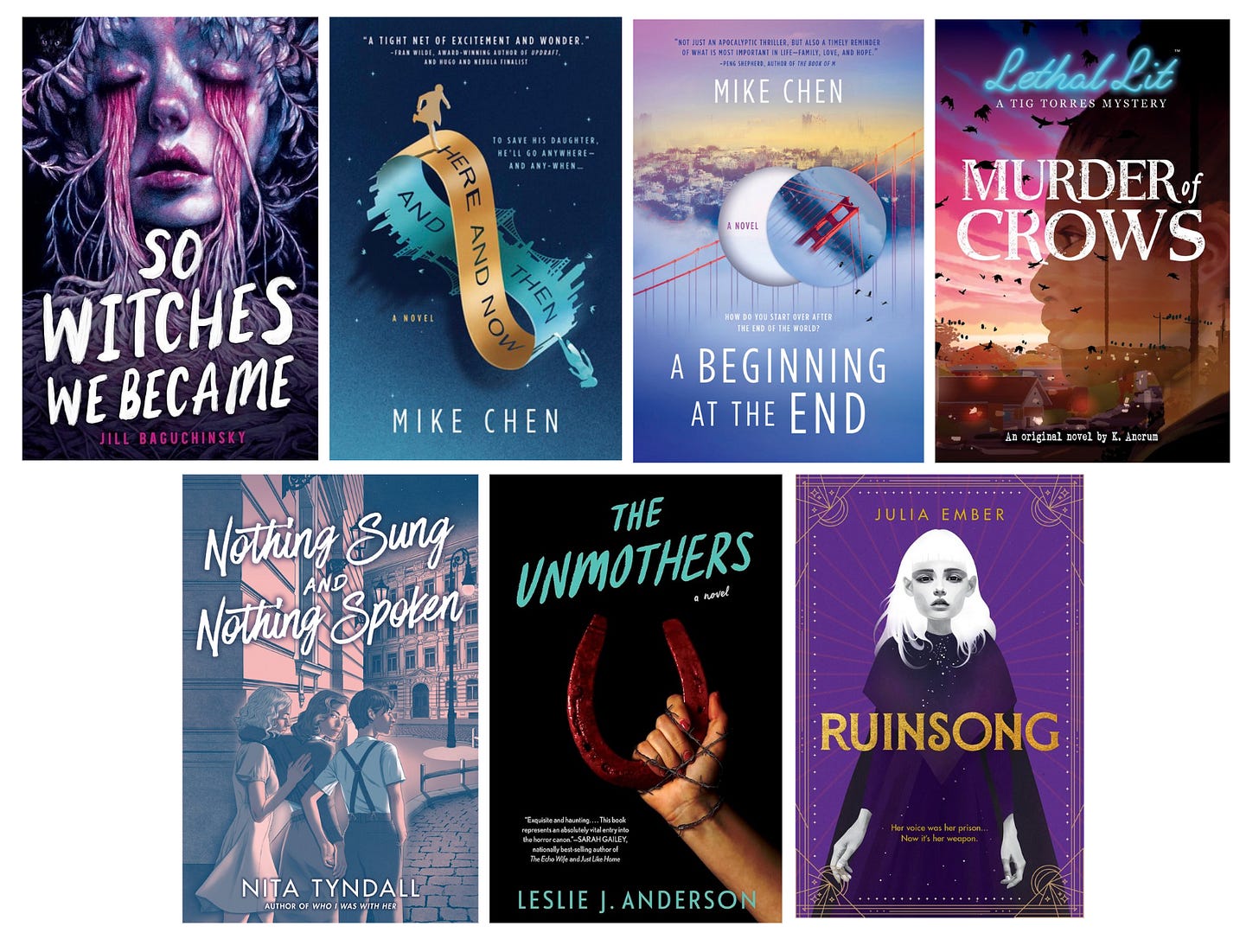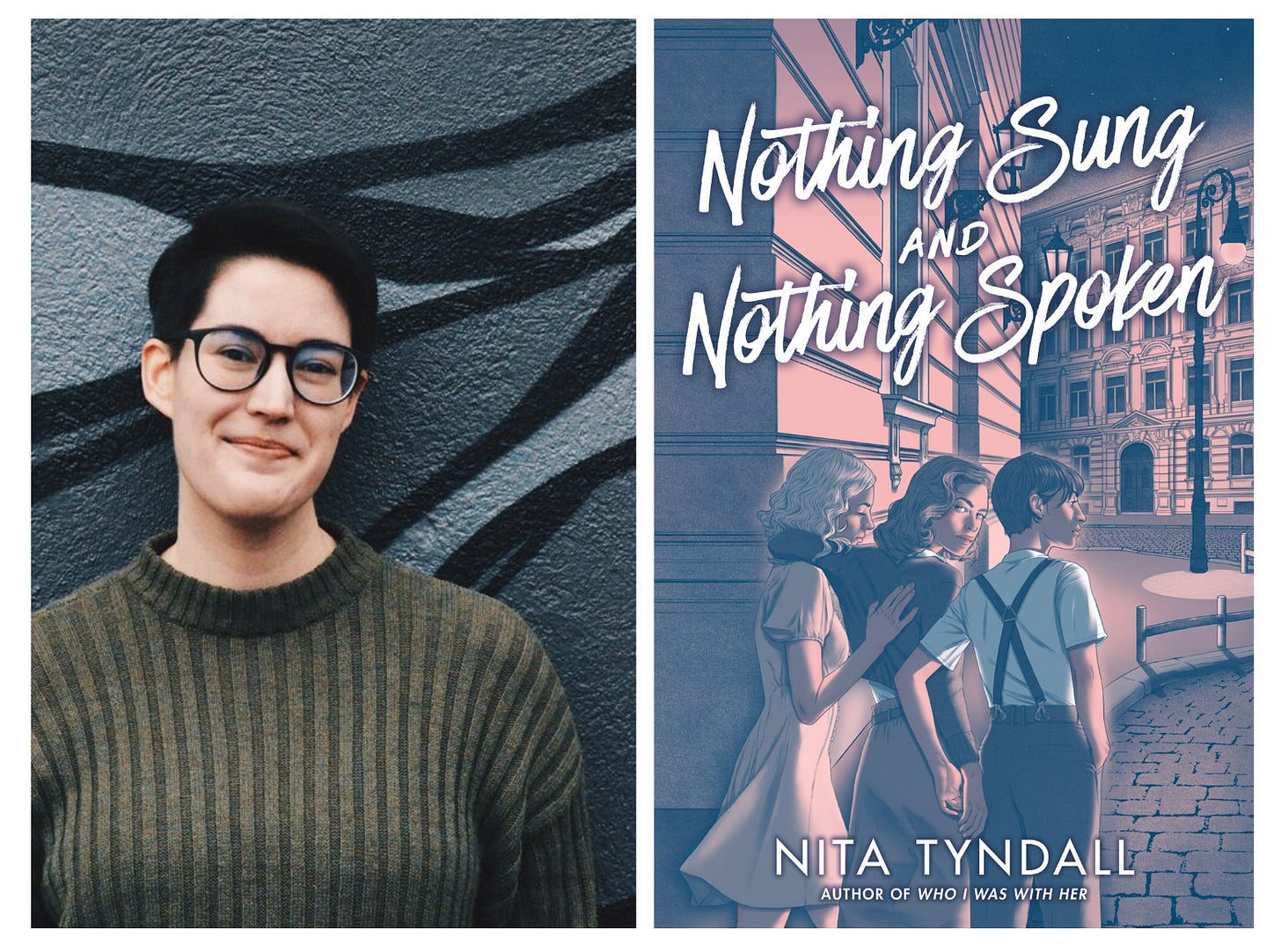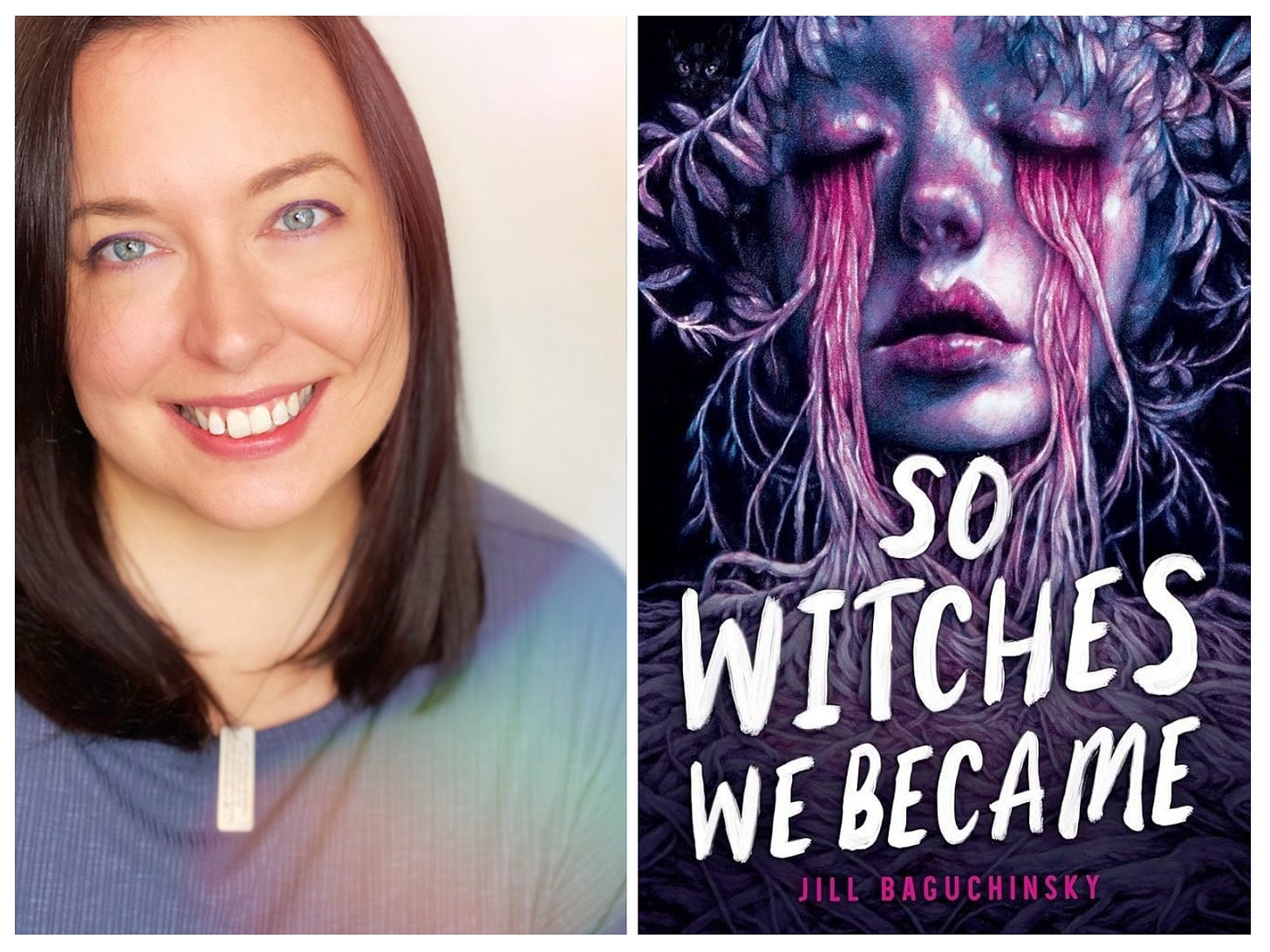Prologues Are Good, Actually
Good prologues exist, so why does it seem like everyone hates them?
Earlier this month, I gave a chat at the Latinx Storytellers Conference (which was, in itself, a wildly inspiring event, please look into it!), where I talked to folks about what agents, editors, and readers tend to look for in opening pages.
It’s a point of stress for a lot of writers gearing up to send their novels out into the world. Those first ten pages. Or the first three chapters. Whatever the entry point is for agents and editors with overwhelming inboxes getting through submissions.
And all too frequently, I hear from writers who are stressed specifically about their prologues. They hear agents and editors don’t like them. They see us harping about it on social media. They saw me make a bad joke about prologues on Twitter (I’m guilty of that, I’m sorry). Their book starts with one! Should they include it? Will it get rejected because of a prologue?!
And yet, endless books exist with prologues in them.
So. What’s the disconnect?
First, a disclaimer. All advice you hear from industry people (like me!) is subjective. I gave my prologue apologist talk and I saw colleagues gasp in horror and clutch one another in the audience. So if someone says otherwise, that’s okay. Their opinion is valid based on their experience in the industry.
But these books I’ve worked on?
They all have a prologue.
So let’s discuss why you often here folks saying prologues are bad.
Think about what makes a really great opening chapter in any novel. Fantastic opening pages get us established in who the character is, what the setting is like, what (some) of the stakes are, and why we should care. These are pretty key elements in getting a reader grounded in a story. Without them, it’s easy to stumble into too many questions, and close the book.
I stress the “some” in stakes, because let’s be honest. It’s really hard to give us the entire stakes of a book in the first few pages or chapters. Often times we don’t get to the core of the story until much later. But we almost always see some stakes and tension popping up. Something personal and close to the character, on a micro level, before we get to the macro level, “world ending” stakes that take us through the story.
The reason you often see industry folks talk about prologues being bad, is often times we see prologues that don’t do any of this.
It’s a prologue where the character is in a dream. Or the prologue introduces us to a random ancillary character who immediately dies. Perhaps the prologue is the main character explaining that they are going to tell you their story.
The problem here, is those kind of prologues… they don’t establish the setting. If we’re in a dream, and we wake up, we are starting over. They don’t get us grounded in the character. A random guy who gets taken out, doesn’t establish who we are reading about. Our main character telling us we’re about to read a book? You’ve ripped from the stakes! Now I know everything turns out okay.
And yes, I know lots of books open with “let me tell you my story” and those are fine, I just seldom see it done well.
Great prologues, and there are great prologues, I cannot stress this enough, establish something and get us grounded.
So let’s look at some examples, with prologues you can actually read and access online, for free. Though please do buy the books, these writers are great.
In Nita Tyndall’s Nothing Sung and Nothing Spoken, it’s the summer before World War II, and tensions are mounting. A friend group is caught in the middle of the rise of the Nazis and the building resistance. And there is a prologue that does something remarkable:
PROLOG
10 August 1945
ALLIIERTEN-BESETZTES DEUTSCHLAND
IT BEGAN the summer before the war. An urgent, thrumming summer, the summer we were fifteen, the summer Geli was obsessed with Heinrich. Not some boy we knew, fair-haired and porcelain, but the Jewish poet Heinrich Heine. She’d found a book of his poems, and despite the fact that his words had been forbidden since 1933—or maybe because of it—she clung to that book like a lifeline.
War was coming, but we didn’t know it yet. We were too young to remember what it had been like before. We grew up in shadows, threats looming overhead, and by the time we paid attention to them, it was too late.
Now, you can read the rest of the prologue over here on Epic Reads, but the prologue to Nothing Sung and Nothing Spoken gets us firmly grounded in the setting and the era. It’s just a page long, but by the end of it, we understand where we are going to be for the next 300+ pages, and gives us details of the characters.
Again. It grounds us. “Grounding” really is the word of the day.
Or if we take a look at Jill Baguchinsky’s So Witches We Became, a YA novel about a pack of friends on spring break who discover a horrifying mist that is seemingly devouring everything it touches while trapped on a barrier island, the prologue opens zeroed in on the main character, years ago:
Then
Twelve Years Ago
The girl can’t move. Her eyes snap open but her limbs are stiff as stone.
The night light her father thought would help creates as many shadows in the dark bedroom as it chases away. Those shadows shiver as lightning glints between the slats on the window blinds, chased by a low crash of thunder. The enormous Maglite flashlight, another desperate gift from her father, lies useless under the pillow, inches and miles away at the same time. She can’t turn on a flashlight if she can’t move to grab it.
Her gaze shifts panic-quick to the closet door. It’s closed, thank goodness. Sometimes she forgets to shut it before bed, but tonight she remembered.
You can read the whole prologue over on Paste, but it establishes the main character and the thing she is haunted by throughout the entirety of the book.
It’s a wildly important establishing prologue, that shows a lot about her character, and again, establishes something we are going to interact with through the whole novel.
It also establishes setting, because a core part of Jill’s horror novel, has to do with the weather and hurricanes in Florida.
So please, remember.
Prologues can be great. They can get us grounded in something big and complex, from historical world building to elements of fantasy, that makes the rest of the text far more accessible.
They are an entry point.
Where they often stumble, is in giving us too little. Trying to be coy for no real reason. Leaving us floating with too many questions, when opening pages are meant to get our feet on the ground in your story.
For more great examples, do check out these excerpts:
The Unmothers by Leslie J. Anderson: Grounds us in the mythology of the region.
Here and Now and Then by Mike Chen: Shows us how our main character got stuck in the past.
A Beginning at the End by Mike Chen: Introduces a main character and kicks off the start of the apocalypse.
Julia Ember’s Ruinsong: Introduces the magic system and why one of our main characters is stuck in a life she doesn’t want.
Murder of Crows by K. Ancrum: Establishes the crime that our main character is digging into.
I hope these examples, and the ones I shared above, help you breath a little easier, and help you revise a little more. Chances are, your prologue is fine. Just make sure it gets us grounded.
Some fun tidbits worth sharing outside our little talk today?
My buddy Preeti Chhibber has a new book out and it is hilarious. Please go look up Payal Mehta’s Romance Revenge Plot and preorder it or request it at your local library.
Mike Chen announced a new book, and is making his Young Adult debut with Running Press Kids in 2026.
My good pal (and one of my favorite writers, period)
has a new short story out in and you all should check it out. And go subscribe to both of those newsletters while you’re at it.I’ve got two lovely events coming up. I’ll be joining Randy Ribay at Children’s Book World on September 30th to celebrate Everything We Never Had. That’ll be at 7PM. And then on October 16th I’ll be at A Novel Idea with Angela Tucker to talk about her book You Should Be Grateful.
The cover reveal for Rosiee Thor and Vania Stoyanova’s Why On Earth was unleashed, and it’s a really beautiful anthology about an alien invasion, and features a very cute story from me!
And you should also check out K. Ancrum’s cover for The Corruption of Hollis Brown. Whew!
Until next time, go write good things.






This definitely helped me breathe easier, thanks!